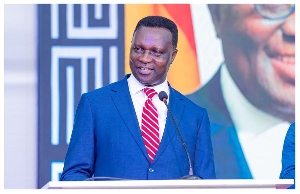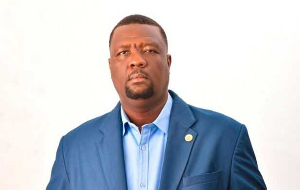The Minister for Education, Yaw Osei Adutwum, has emphasised that higher education is crucial for the transformation of our nation.
According to him, years ago, the IMF advised developing countries against subsidising higher education.
He said, "At that time, under President Rawlings' leadership, Ghana decided to engage with the IMF, which came with conditions, one of which was that the government should not fully fund higher education."
He said this during a speech he delivered at the 50th anniversary celebration of the Christian Service University.
"As a result, while we attempted to invest in higher education, we could not do so to the extent needed. In contrast, countries like Brazil rejected this advice and fully invested in their higher education systems, leading to their successful transformation. Brazil recognized higher education as a public good rather than a private benefit". The minister revealed.
He further emphasized that higher education is vital for our country’s growth, adding that economists indicate that for every one percent increase in higher education, a country’s GDP rises by 2.5 percent.
"There is no better investment for national growth than in higher education. Those with higher education see an increase in lifetime earnings of 15 to 20 percent and enjoy more job opportunities compared to those without a degree. Additionally, 40 to 50 percent of university graduates are likely to reach managerial positions, underscoring the need to educate our youth in areas of high demand", he stated.
He, however, disclosed that some programs currently offered, like the Bachelor of Arts in Education (Non-Teaching) and Development Education, are not aligned with job market needs, as there are limited job opportunities in those fields.
"Fortunately, the President has made my role easier by demonstrating a strong commitment to education and providing the necessary resources to promote development through education," he said.
He further disclosed that, excitingly, students will soon receive tablets for learning purposes, allowing them to engage in practical lessons. The government of Ghana has alleviated the financial burden of school fees for parents, ensuring that everyone has access to higher education.
Moreover, public schools are undergoing transformative changes, with many new schools built in various regions, equipped with quality facilities and resources, thanks to government support.
On his part, Professor Samuel Kofi Afrane, Vice Chancellor of the university, expressed profound gratitude to God for CSU's remarkable journey, acknowledging the visionaries and dedicated individuals who laid the foundation for the university. Many of these pioneers, who have since passed away, were honored for their sacrifices and unwavering commitment to CSU's success.
He reflected on the 50th anniversary celebration of the university, marking a historic double milestone for the institution.
Adding that the year 2024 not only celebrates CSU's half-century journey but also the granting of its charter certificate by President Akufo-Addo, paving the way for greater institutional autonomy.
Reflecting on five decades of achievements, he said CSU proudly proclaim, “Ebenezer, thus far has the Lord brought us. Once a humble Bible college with fewer than 100 students, CSU has transformed into a thriving liberal arts university offering 11 undergraduate and 8 postgraduate programs, complete with a modern campus and state-of-the-art facilities. The faculty has grown from a handful of lecturers to over 50 professionals representing diverse academic disciplines".
This transformation, he said, solidifies CSU's status as a fully-fledged, autonomous tertiary institution, renowned for its commitment to Christ-centered education, professional development, student mentorship, and cutting- edge ICT integration, including artificial intelligence. Scholarships are also offered to enhance access to higher education.
Despite facing challenges along the way, he said, the university has consistently experienced God's faithful guidance and protection throughout its history. While expanding its academic offerings beyond theology, the university remains steadfast in upholding its core evangelical Christian values.
Regional News of Wednesday, 9 October 2024
Source: Nana Peprah, Contributor
Education minister highlights transformative role of higher education at Christian Service University’s 50th anniversary
Entertainment












